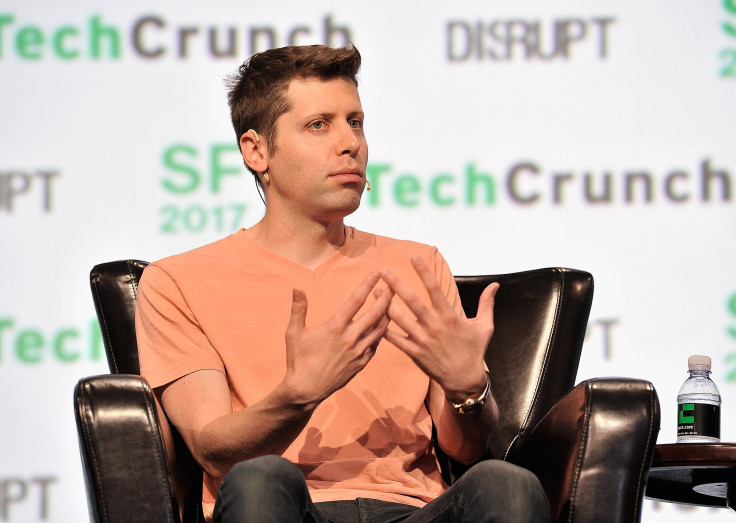OpenAI and Jony Ive Set to Launch the 'iPhone of AI' With $1 Billion Backing from Softbank
Ex-Apple designer Sir Jony Ive is in talks with OpenAI's Sam Altman to create the first AI consumer device in the form of a next generation smartphone.

OpenAI is in advanced talks with esteemed ex-Apple design chief Sir Jony Ive and Softbank's Masayoshi Son to launch the "iPhone of artificial intelligence".
The venture is said to be backed by a billion dollars in funding from SoftBank.
It was reported by The Information that Microsoft-backed OpenAI is seriously contemplating the move to hardware, not content to stop at the large language models and art-generating AI that have helped Altman become a staple of the industry.
Sir Jony Ive, a close associate of Steve Jobs, led the design of the candy-coloured iMacs that saved Apple from oblivion in the 1990s. He followed that up with the design of the first Apple iPhone, launched in 2007.
Since leaving Apple in 2019, he has been involved in a number of high-profile projects including a $60,000 turntable by audio equipment company Linn and a logo for King Charles III's Astra Carta framework, a movement to emphasise sustainable space practices.
Altman has reportedly tapped Ive's LoveFrom company, which the designer founded after he left Apple in 2019 to develop OpenAI's first consumer device.
Ive and Altman have been brainstorming at the designer's San Francisco studio to work out the details of the new product.
They hope to create a more natural and intuitive user experience backed by AI. This line of thinking is no doubt backed by Ive's reservations regarding what he believes to be the detrimental side effects of the iPhone's breakthrough touchscreen technology.
Speaking to the Financial Times in 2018, he sounded alarm bells around addictive iPhone usage, saying it had become a "moral responsibility" for Apple to address this issue. He cited excessive screen time and compulsive app usage as illustrations of the problem.
For his part, Masayoshi Son, billionaire CEO of Japanese conglomerate SoftBank, has seen his luck turn around as the year goes on, despite some earlier challenges.
Following the wildly successful listing of chipmaker Arm, in which Softbank owns a 90 per cent stake, on the New York Stock Exchange, Son has been on the hunt for deals in AI. Son had earlier admitted to being in "defensive mode" throughout the pandemic and the tech downturn of 2020.
However, after Arm's blockbuster listing raised almost $5 billion in proceeds, swelling Son's war chest to $65 billion, the mega tech investor has said he is in "offence mode" once more.
Son said in June that he was a "heavy user" of ChatGPT. He has developed a strong partnership with OpenAI's Sam Altman, describing the latter as "one of the key people on Earth". Son went on to say he speaks to Altman almost daily.
The two already share a business relationship. Softbank's mobile unit is in partnership with OpenAI to serve companies in Japan that wish to deploy generative AI technology, such as chatbots.
In an indication of Son's larger ambitions, the Softbank mobile subsidiary has said it wants to develop its own ChatGPT equivalent in Japan. Son wants to develop the venture into a global AI competitor which would also make chips that power the technology.
The current leader in the consumer market for AI is Nvidia, whose AI chips have bolstered its market value to $1 trillion this year.
Currently, Arm is much less involved in the creation of the large language models behind ChatGPT, compared to Nvidia – despite making AI a key part of its growth story in recent presentations in a bid to diversify from its core smartphone chip market.
The partnership with OpenAI looks set to change that.
The three-way venture is not without risk. Hardware is a tricky proposition. OpenAI once opened a robotics division to explore ways machines can perform advanced tasks such as solving a Rubik's Cube. The division was disbanded in 2021.
However, OpenAI is in a strong financial position, even before accounting for Softbank's backing. It has told investors that it expects a revenue of $1 billion this year. All in all, the company is currently sitting on a total of $11.3 billion in venture capital.
If successful, this new AI-powered smartphone venture could be the next big consumer device in an industry where the current headline acts are virtual reality headsets, such as Meta's Quest, and smart speakers, such as Amazon's Echo.
© Copyright IBTimes 2025. All rights reserved.






















